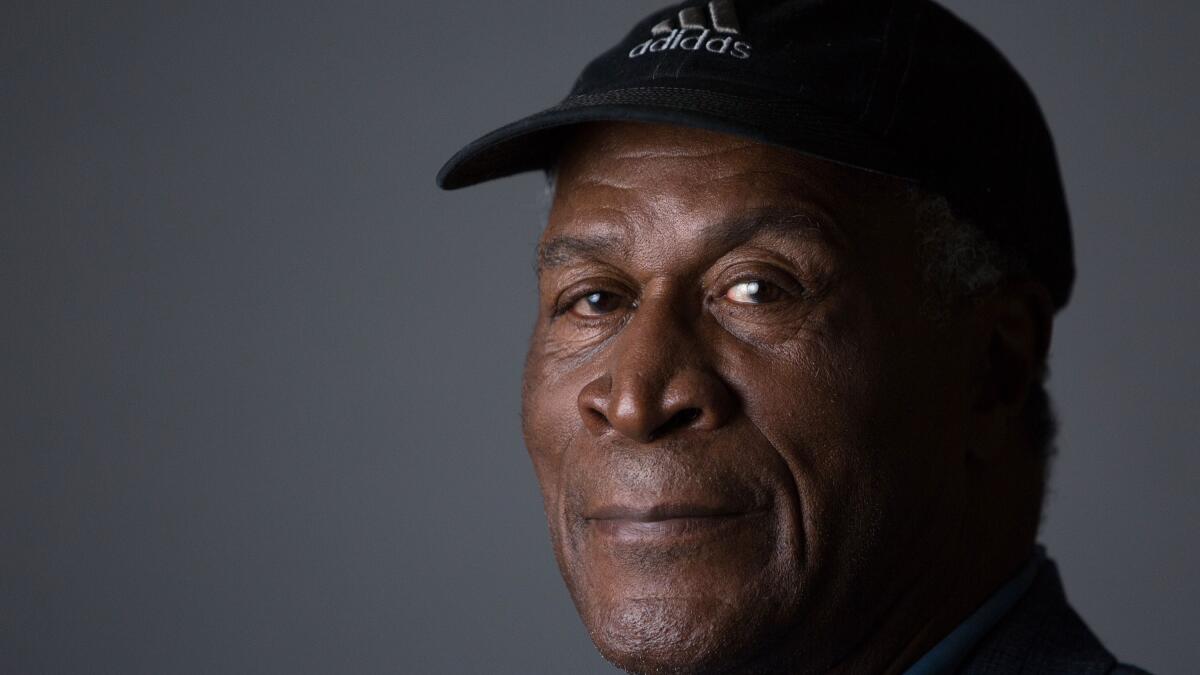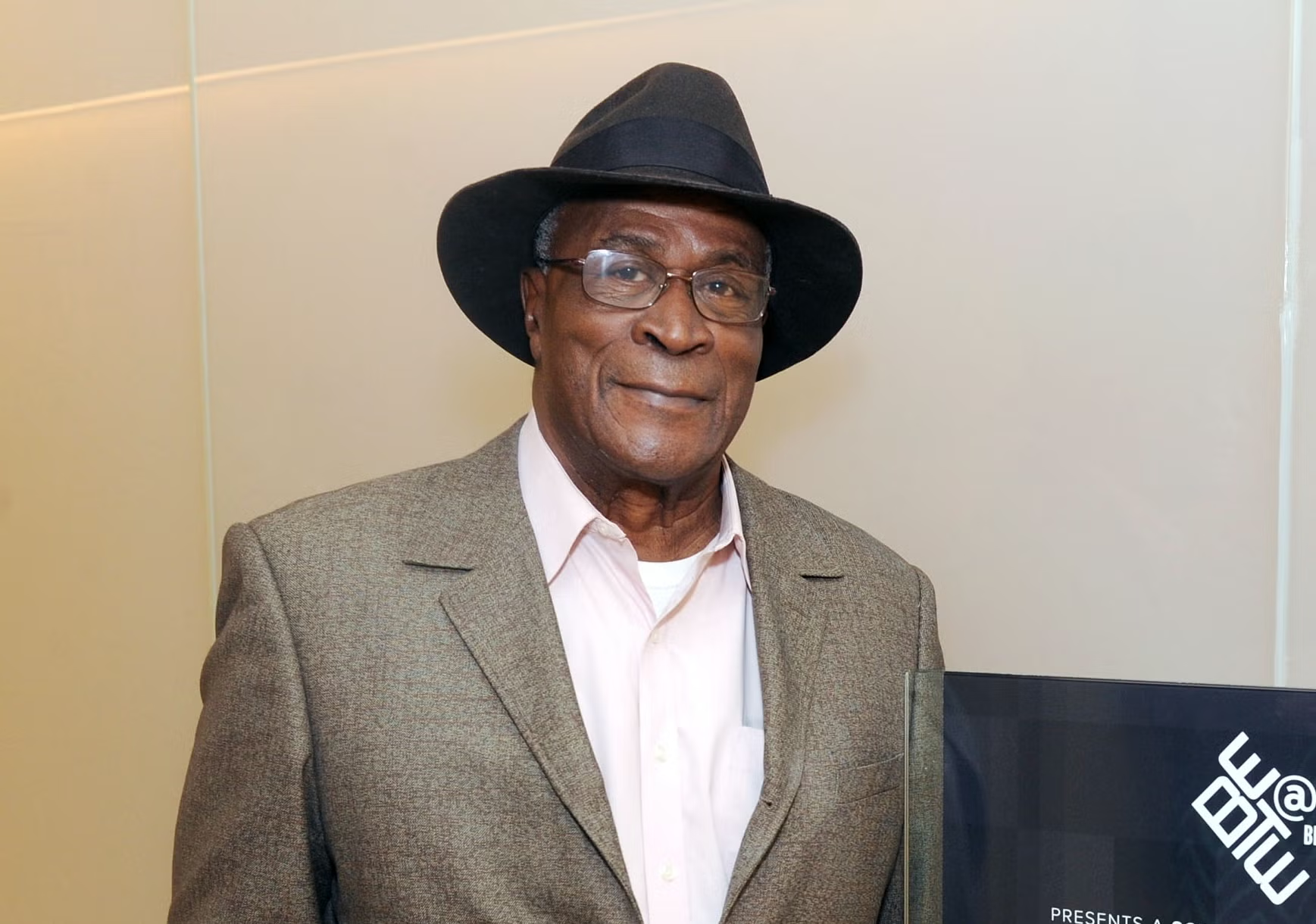Tributes are being paid to actor John Amos, known for his iconic roles in the groundbreaking TV series Roots and Good Times. Amos, who passed away at the age of 84, left a lasting impact on American television.
He famously portrayed James Evans, the strict yet loving father on Good Times, which aired from 1974 and was one of the first sitcoms centered on a Black family.
However, after three seasons, Amos was fired from Good Times following extended disputes over how the show’s white writers depicted its characters.
He later took on the role of the older Kunta Kinte in Roots, a landmark mini-series that told the story of an African man forcibly brought to America as a slave, further cementing his legacy in American television history.
Amos’s film credits include memorable roles in Die Hard 2, Coming to America, and Uncut Gems, while his TV appearances spanned shows such as The Mary Tyler Moore Show, The West Wing, The Fresh Prince of Bel-Air, 30 Rock, and Two and a Half Men. His final role will be seen in the upcoming series Suits LA.
“His Legacy Will Live On”
Actor Martin Lawrence led the tributes, writing on social media: “This one hits different. My condolences go out to the family of a true legend, John Amos.”
Jimmie Walker, Amos’s co-star on Good Times shared: “John was a great actor, and my condolences go out to his entire family, friends, and his many, many fans.”
Amos’s son, Kelly Christopher, announced his father’s passing, saying, “He was a man with the kindest heart, a heart of gold… and he was loved the world over.
Many fans consider him their TV father. He lived a good life. His legacy will live on in his outstanding works in television and film as an actor.”
Veteran weatherman Al Roker also paid tribute, noting how Amos “brought dignity, grace, and honesty to his roles.”
He reflected on meeting Amos during his early career, remembering him as Gordy the Weatherman on The Mary Tyler Moore Show. “When he quit Good Times, people respected him for his stand. He will be missed.”

Amos’s Breakthrough and Clashes on Good Times
Before his acting career took off, Amos was a professional football player. He transitioned into acting with appearances on The Leslie Uggams Show and Maude.
His role on Maude, alongside his on-screen wife Esther Rolle, led to the creation of Good Times, which was set in a Chicago housing project.
In a 2021 interview with Time, Amos reflected on Good Times, saying it was one of the most realistic portrayals of an African American family living in those circumstances.
However, he frequently disagreed with the show’s depiction of its characters, particularly the comedic portrayal of J.J., his on-screen son played by Jimmie Walker.
Amos felt the show’s focus on J.J.’s catchphrase “dyn-o-mite” overshadowed the more meaningful storylines of his other children, one who aspired to be a Supreme Court Justice, and the other a future surgeon.
Amos admitted that he wasn’t always diplomatic in his critiques, which eventually led to his firing. “I felt too much emphasis was being put on J.J. in his chicken hat, saying ‘dy-no-mite!’ every third page,” Amos recalled.
“But I wasn’t the most diplomatic guy in those days, and [the producers] got tired of having their lives threatened over jokes.
So they said, ‘Tell you what, why don’t we kill him off? We can get on with our lives!’ That taught me a lesson—I wasn’t as important as I thought I was to the show or to Norman Lear’s plans.”
Good Times and Its Legacy
Good Times was adapted in the UK in 1976 as The Fosters, which became the first British sitcom to feature an all-Black cast. Norman Beaton starred as the father, with Lenny Henry in one of his early roles as one of his sons.
In 2023, Good Times was rebooted as an animated series by Netflix, described as a “spiritual sequel” to the original.
A Role That Changed His Life: Roots
In 1977, Amos took on a career-defining role in Roots, a mini-series that the U.S. Library of Congress estimated was viewed by 85% of American households.
Based on Alex Haley’s novel, the show shed light on the brutal history of slavery in the U.S. and its enduring effects. In a 2022 interview with NY1,
Amos described the experience as “life-changing” both as an actor and on a personal level. He explained to Time magazine that Roots was a turning point, not just for his career but also for how he saw the roles offered to Black actors.
“It was the culmination of all the misconceptions and stereotypical roles that I had lived and seen being offered to me. It was like a reward for having suffered those indignities.”
His powerful portrayal in Roots earned him an Emmy nomination, and the series itself became a cultural milestone, elevating awareness of slavery’s history and its lasting impact on American society.
Amos’s contributions to both television and film, along with his stance on the importance of authentic representation, have solidified his legacy as a respected and influential figure in entertainment.


